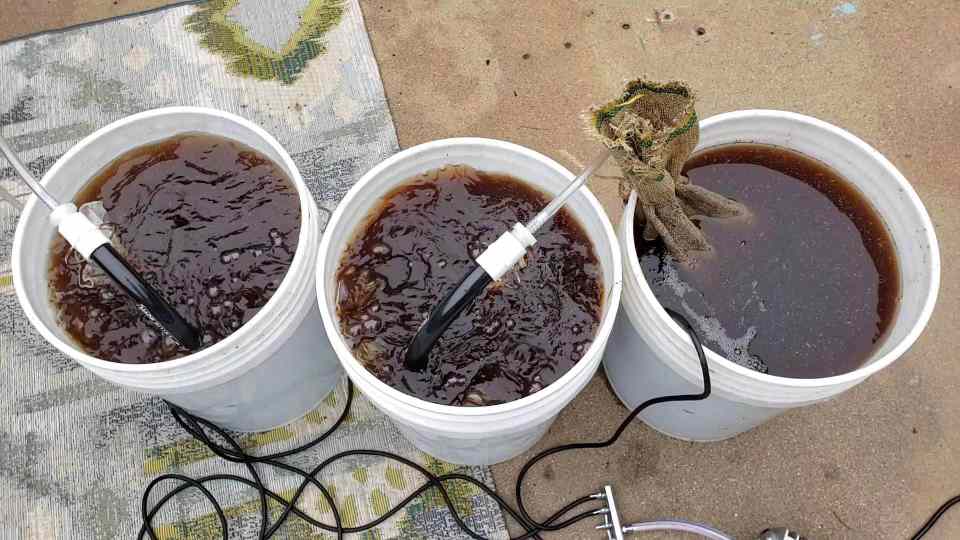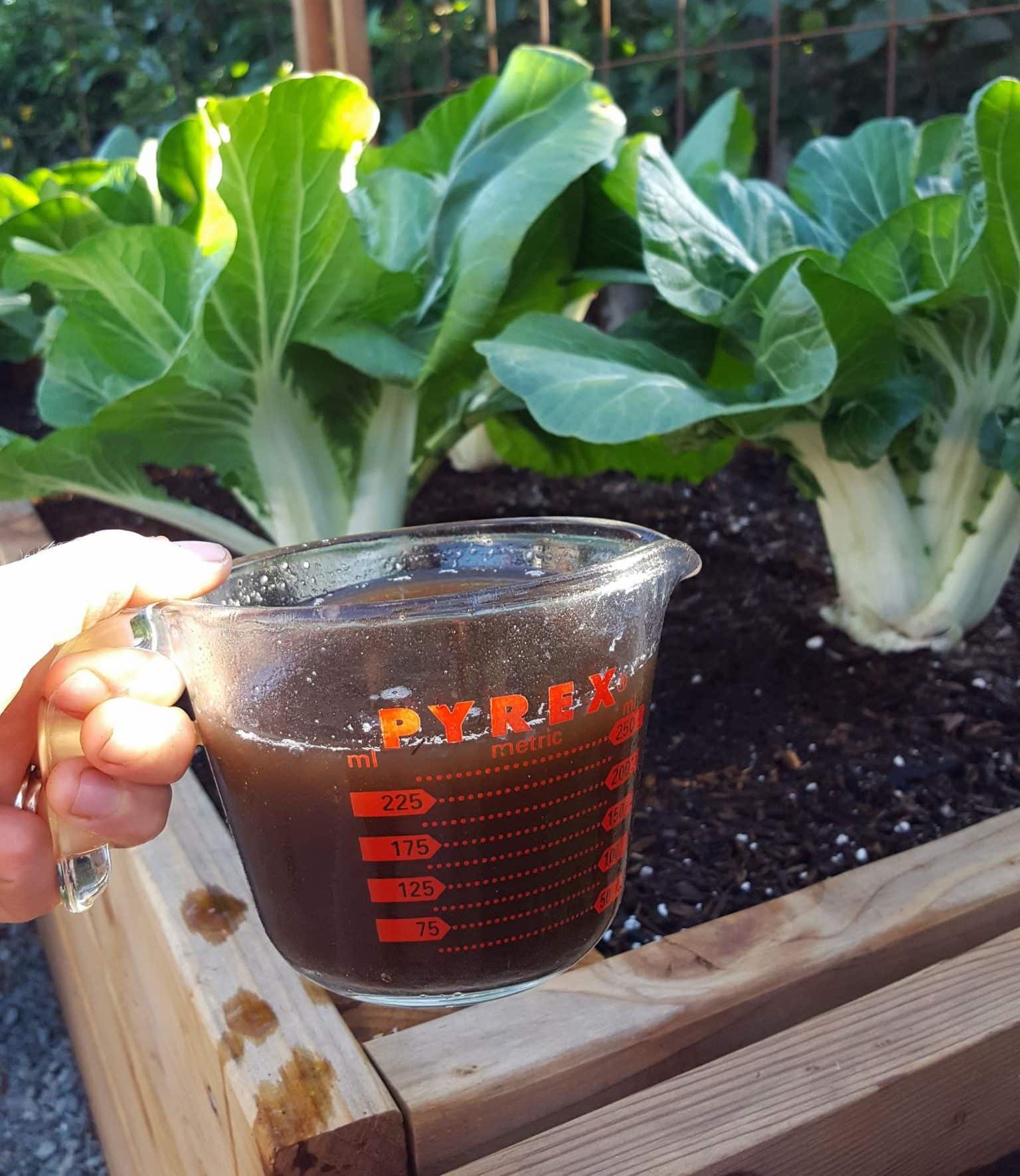
Brew Up Abundance: Unlock Your Garden's Potential with Compost Tea
Are your tomato plants looking a little lackluster? Is your zucchini starting to resemble a wilted flag rather than a vibrant green powerhouse? Late summer often brings a sense of fatigue to our gardens. After months of producing, our plants are often depleted, the soil tired, and the pests persistent. But don't despair! There's a natural, sustainable, and surprisingly affordable solution to revive your tired garden and unlock its full potential: compost tea.
Imagine turning your garden waste into "liquid gold" – a potent elixir that nourishes your plants, boosts their resistance to disease, and contributes to a healthier ecosystem. Compost tea isn't just another fertilizer; it's a microbial inoculant, a teeming brew of beneficial organisms that can work wonders. In this guide, we'll reveal the secrets to brewing and using compost tea, transforming your gardening practices and yielding abundant results. We will also explain the difference between actively aerated compost tea (AACT) and non-aerated compost tea.

Understanding the Magic of Compost Tea
Compost tea isn't just some whimsical gardening fad; it's rooted in sound science. The real magic lies in the unseen world of beneficial microbes – bacteria, fungi, protozoa, and nematodes – that thrive in healthy compost. These microorganisms play a crucial role in a healthy, sustainable home and garden. Here's why they're so important:
Nutrient Cycling: Microbes break down organic matter, releasing essential nutrients in a form that plants can readily absorb. It's like having a tiny, underground army constantly converting nutrients into plant food. This is especially important in organic gardening, where we strive to feed the soil, which then feeds the plants.
Disease Suppression: Beneficial microbes can outcompete harmful pathogens, protecting your plants from diseases. Some even produce antibiotics that inhibit the growth of disease-causing organisms. A healthy soil ecosystem is a resilient ecosystem, less susceptible to outbreaks.
Improved Soil Health: Microbes contribute to soil structure, improving aeration and water retention. They help create a crumbly soil texture that is ideal for root growth.
Compost tea is a vehicle for delivering these beneficial microbes directly to your plants and soil. Think of it as a microbial transplant, introducing a vibrant community of organisms to kickstart or revitalize the soil food web. It is also a great way to return microbes to the soil. It's important to understand that compost tea isn't primarily a fertilizer; it's a microbial inoculant. It enhances the soil's ability to provide nutrients, rather than directly supplying them.
Actively aerated compost tea (AACT) is a specific type of compost tea brewed with added oxygen, promoting rapid microbial growth and diversity.

Gathering Your Supplies: What You'll Need
The beauty of compost tea is its simplicity. You likely already have many of the necessary ingredients and equipment at your sustainable home. Here's a rundown of what you'll need for your backyard projects:
High-Quality Compost: This is the heart of your compost tea. The better the compost, the better the tea. Use compost that is dark, crumbly, and smells earthy. Avoid compost made with herbicides or pesticides, as these can harm the beneficial microbes. This is a key ingredient for a seasonal harvest.
Water Source: Dechlorinated water is essential. Chlorine kills microbes, which is exactly what we don't want. You can dechlorinate tap water by letting it sit in an open container for 24-48 hours. Rainwater is an excellent alternative, especially for farmhouse life.
Brewing Container: A 5-gallon plastic bucket works perfectly. You can also use a large container or invest in a dedicated compost tea brewer.
Air Pump and Air Stone: These are necessary for actively aerated compost tea (AACT). The air pump oxygenates the water, promoting rapid microbial growth. The air stone diffuses the air, creating smaller bubbles and increasing oxygen exposure.
Fine Mesh Bag or Nylon Stocking: This holds the compost, preventing it from clogging your sprayer.
Optional Ingredients: These can further boost microbial activity.
- Molasses: Provides a readily available food source for bacteria.
- Kelp Meal: Adds trace minerals and growth hormones.
- Fish Hydrolysate: Provides amino acids and other nutrients.
Sprayer or Watering Can: For applying the compost tea to your plants.

Step-by-Step Guide to Brewing Actively Aerated Compost Tea (AACT)
Now for the fun part! Brewing actively aerated compost tea is a simple process. Here's a step-by-step guide:
- Prepare the Water: If using tap water, let it sit for 24-48 hours to dechlorinate.
- Add Compost to the Mesh Bag: Fill the mesh bag with 1-2 cups of high-quality compost.
- Place the Bag in the Brewing Container: Submerge the bag in the dechlorinated water.
- Add Optional Ingredients: Add 1 tablespoon of molasses, kelp meal, or fish hydrolysate per gallon of water.
- Place the Air Stone in the Container: Position the air stone at the bottom of the container and connect it to the air pump. Turn on the air pump.
- Brew for 24-48 Hours: The brewing time depends on the temperature and the quality of your compost. Warmer temperatures will speed up the process.
- Strain the Tea: After brewing, remove the mesh bag and strain the tea through a fine-mesh sieve or cheesecloth to remove any remaining particles.
Troubleshooting Tips:
- Smell: A healthy compost tea should smell earthy, similar to fresh soil. A foul or rotten smell indicates anaerobic conditions and an imbalance of microbes. Discard the batch and start over, ensuring adequate aeration.
- Foam: A frothy foam on the surface of the tea is a good sign of microbial activity.
Actively aerated compost tea relies on a strong airflow to create aerobic conditions which support the growth of beneficial microbes.

Applying Compost Tea for Maximum Impact
Timing and method matter when it comes to applying compost tea. Here's how to maximize its benefits for your homegrown garden:
Best Time to Apply: Apply compost tea early in the morning or late in the evening, when temperatures are cooler and the sun is less intense. This prevents the microbes from being damaged by UV radiation.
Foliar Spray: Dilute the compost tea with water (typically a 1:10 ratio) and spray it directly onto plant leaves. Ensure you cover both the upper and lower surfaces of the leaves for optimal absorption. This is particularly effective for delivering nutrients and beneficial microbes directly to the plant. Especially beneficial for vegetables that are susceptible to fungal disease.
Soil Drench: Pour the undiluted compost tea around the base of plants, focusing on the root zone. This helps to improve soil health and deliver nutrients to the roots.
Frequency of Application: Apply compost tea every 1-2 weeks during the growing season. You can also apply it to seedlings and transplants to give them a boost.
Important Note: Avoid applying compost tea immediately before or after using synthetic fertilizers or pesticides, as these can harm the beneficial microbes.
Troubleshooting and Advanced Techniques
Like any gardening technique, brewing and using compost tea may require some fine-tuning. Here are some tips for troubleshooting and advanced techniques:
- Foul-Smelling Tea: As mentioned earlier, a foul smell indicates anaerobic conditions. Increase aeration by adding a stronger air pump or using more air stones.
- Weak Tea: If your compost tea doesn't seem to be having a noticeable effect, try using higher-quality compost or adding more optional ingredients.
- Algae Growth: Algae can grow in compost tea if it's exposed to sunlight. Brew your tea in a dark or shaded location.
- Customizing Your Tea: You can tailor your compost tea to specific plant needs by adjusting the ingredients. For example, use more kelp meal for potassium-loving plants like tomatoes.
- Microscope Evaluation (Optional): For advanced users, a microscope can be used to evaluate the diversity and abundance of microbes in your compost tea. This can help you fine-tune your brewing process.
- Proper Disposal: Don't throw away the compost from the mesh bag after brewing! Add it back to your garden as a valuable soil amendment.
From Waste to Wonder: The Power of Compost Tea
Compost tea is more than just a gardening technique; it's a philosophy. It's about working in harmony with nature, harnessing the power of beneficial microbes to create a thriving ecosystem in your garden. By brewing your own compost tea, you're not only nourishing your plants but also contributing to a more sustainable and resilient food system. It is a great way to apply sustainable living practices.
So, embrace the magic of compost tea, experiment with different recipes, and share your experiences with fellow gardeners. Together, we can cultivate healthier gardens, stronger plants, and a more sustainable future. Make a batch of compost tea at the end of the season to feed your soil organisms before the winter!

Ready to brew up abundance?
- Download our free guide to building a compost pile that creates the perfect compost for your tea!
- Share your compost tea brewing tips in the comments below!
- Check out our shop for quality compost starter kits and brewing supplies.
- Read Next: [Link to related article on improving garden soil or dealing with pests naturally]